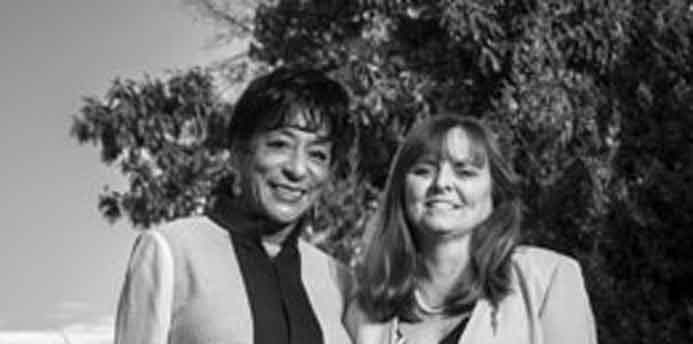The landscape of Wilmette is dominated by the Bahá’í Temple on Sheridan Road.
The sparkling white temple framed against a blue sky is a powerful symbol of the faith of believers adopting a new religion and working to ensure the faith’s growth and survival.
Two Wilmette women who found the Bahá’í faith as young adults are Valerie Dana, who is a member of the National Spirituality Assembly, and Ellen Price, who is chairman of the Wilmette Spiritual Assembly.
“The concept that we all come from the same God made a lot of sense,” says Dana, describing the feeling she had when she first learned about the Bahá’í faith as a college student. “The idea of unity in religion instead of conflict touched my heart.”
Coming from an Episcopal background, Price says she didn’t know there was a religion that taught what she knew in her heart was true. But when introduced to Bahá’í, she embraced the idea of progressive revelation.
The Bahá’í faith teaches that God has revealed himself to humanity through Divine Messengers: Abraham, Moses, Buddha, Zoroaster, Jesus, Muhammad, and the founder of the Bahá’í faith, Bahá’u’lláh. While the modern-day result of differing messengers has been division and competing religions, the Bahá’í believe their mission is to unite humanity. Dana explains that on a practical level this means putting away petty differences, serving one God and seeing no one as a stranger.
Although the religion developed in Persia (modern day Iran), an area of the world not known for democracy, the religion is run by democratically elected councils at the local, national and international levels. There are no clergy; instead, believers gather in study circles that are geographically based. And as Price and Dana explain, the faith’s mission and structure carry through to individual believers and the way they live their lives.
“One of the laws of our faith is ‘no back biting,’” Price says. So instead of petty gossip and complaint, they solve problems in the family and faith using a process they call “consultation.” You put forward an idea, and then you detach from it. Other people put in their ideas, but no one defends or pushes, instead it’s a collaborative process.
As an attorney, Dana explains that her faith changed the way she practiced corporate law. “I represented my clients but with dignity and respect for the other side,” she says. And notes that being a Bahá’í isn’t simply something one does, it’s really one’s identity.
“The real spiritual transformation occurs within you and changes how you interact with others,” Dana says. “That can only occur through the love of God.”
The Bahá’í Temple in Wilmette is open to the community as a place of prayer and worship.

